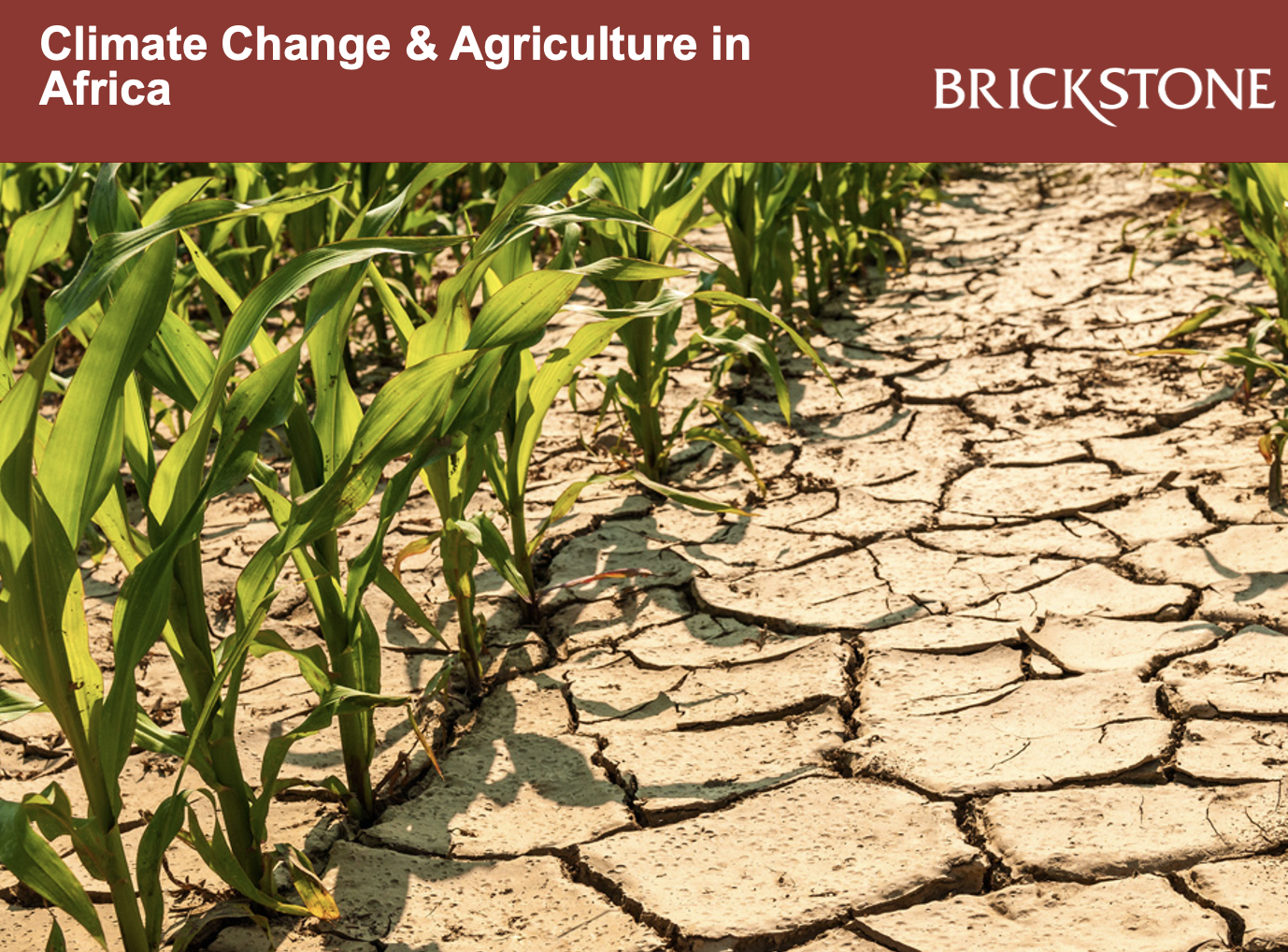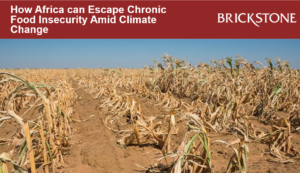Climate Change & Agriculture in Africa
Agriculture in Africa has a huge social and economic footprint, however climate change and extreme weather conditions are posing severe threats to farmers across the continent.
This article by Brickstone Africa reviews publications on the impact of climate change in agriculture in Africa, and the way forward, highlighting key facts and insights.
Adapting Agriculture in Africa to Climate Change
According to Mail Guardian, Africa has diverse agro-ecological zones, ranging from the rain-forest vegetation with bi-annual rainfall to relatively sparse, dry and arid vegetation with low unimodal rainfall. The enhancement of sustainable agricultural development is fundamental to the attainment of increased economic growth, food security and the eradication of poverty.
Agriculture is the backbone of Africa’s economy and accounts for the majority of livelihoods across the continent. However, the sector faces a huge risk as a consequence of repeated climate change.
Sustainable agricultural practices play a key role in mitigating the threat that climate change has on the existence of this important sector in Africa. Agriculture is sensitive to weather and climate. Its existence heavily depends on soil, water and other natural resources that the climate affects.
While changes such as in temperature, precipitation and frost timing could lengthen the growing season or allow different crops to be grown, it could also make agricultural practices more difficult. The effects of climate change on agriculture will depend on the rate and severity of the change, as well as the degree to which the farming community in Africa can adapt.
Food security and climate change are two major development challenges of our time. In Africa, the food system is off track, and the climate is changing profoundly. In 2020, more than one in five people in Africa faced hunger—more than double the proportion of hungry people in any other region— and about 282 million of Africa’s population are undernourished.
According to McKinsey, Africa, overall, is vulnerable to these effects because for many of its crops, it is at the edge of physical thresholds beyond which yields decline. Moreover, a substantial portion of some countries’ economies (for example, one third of GDP for Ethiopia and one fifth of sub-Saharan Africa’s economic output) depends on agriculture.
Finally, some aspects of adaptation may be challenging; for example, African farmers are generally more vulnerable to higher temperatures, fluctuations in rainfall, and variable yields than farmers in developed countries, who can usually more easily secure crop insurance, adjust what they plant, irrigate their fields, or apply crop protection chemicals and fertilizers.
Against this backdrop, the IMF affirms that governments often try to help by intervening in agricultural production and food distribution. Untargeted interventions can be inefficient and weigh on national budgets, inflate food prices, impede competition, and reduce crop yields. For example, price controls and numerous and lengthy regulatory processes contribute to shortages by disincentivizing food production, storage, and trade. Similarly, subsidies for fertilizer and seeds drive overuse and suppress crop diversification.
On the other hand, targeted government involvement can have merit, such as supporting research and development in building resilience and agricultural productivity. Prioritizing policies around those that best protect the poor will be key amid financing and capacity constraints.
Furthermore, protecting food production and distribution from weather events begins with climate-resilient infrastructure. This type of public investment also creates jobs and can catalyze private investment.
Consider, for example, solar power that facilitates irrigation, water access, and temperature control for food storage. Equally impactful is a flood barrier that protects ports and roads critical to food distribution.
Digitalization is also crucial. It gives farmers access to early warning systems and mobile banking as well as platforms to purchase fertilizers, seeds, or sell produce, helping to connect small producers to large vendors.
Social cash transfers that are targeted and far-reaching help people buy food and rebuild after weather shocks. They further allow families and small businesses to invest in resilience-building equipment and technology. By offering people control of the support they receive, these cash transfers are more effective at containing inequality than agricultural subsidies.
Access to finance from private markets can play a similar role to social assistance. Raising it requires developing financial markets, which can take time. In the interim, micro-finance or public-private partnerships can help provide credit to people who currently don’t have access through banks.
To this end, establishing collateral through advances in property rights is crucial. With World Bank support, Mozambique and Tanzania are expanding title and survey registers and developing digital land administrative services. A pilot project in Ghana uses blockchain technology to improve incomplete or missing land records.
Read more here.






